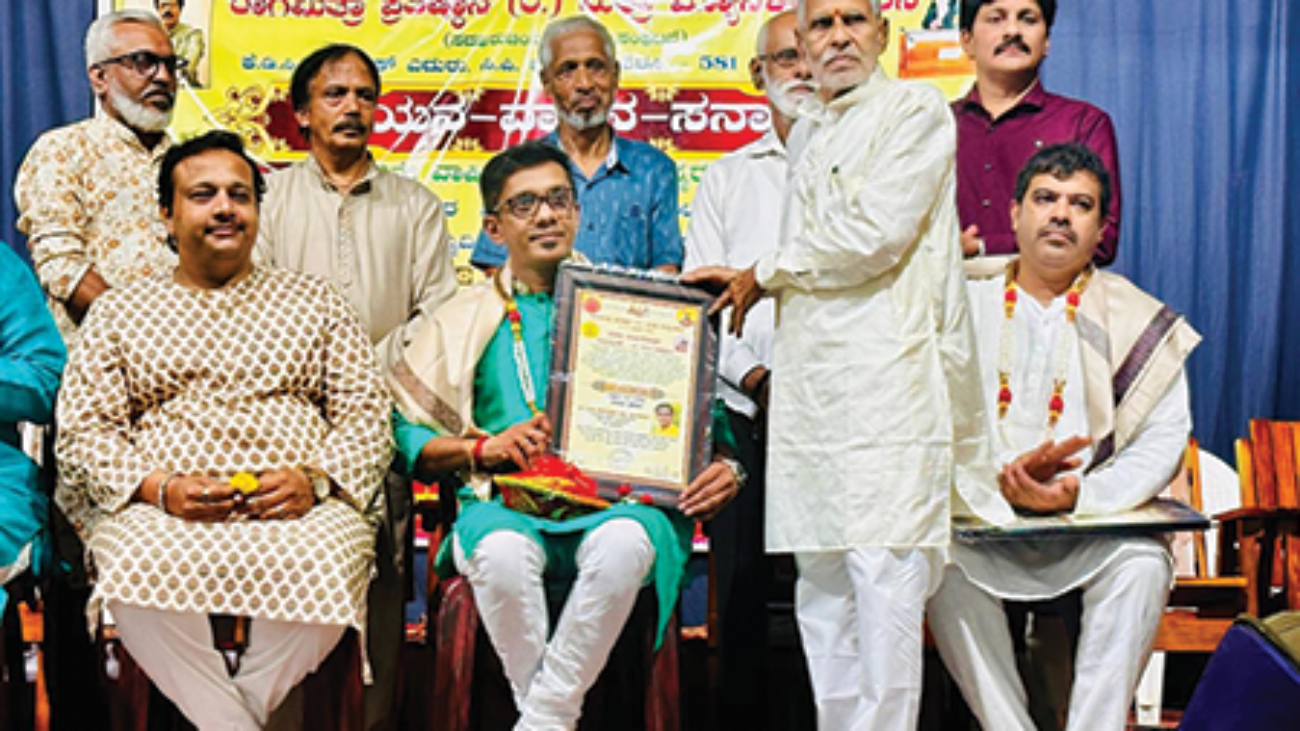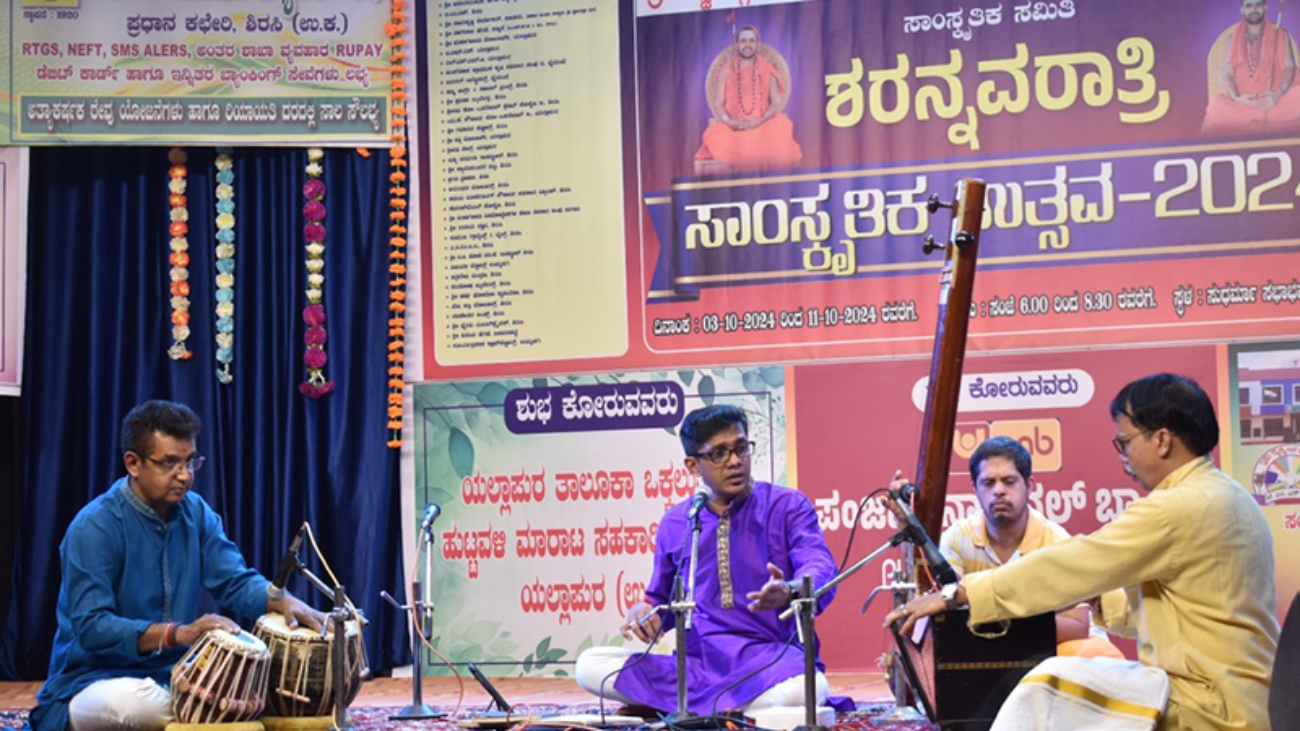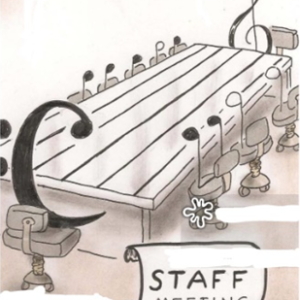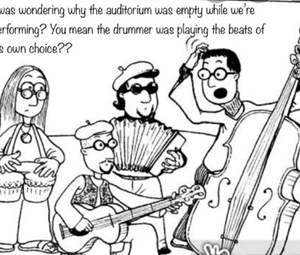I believe every one of us has a passion in life. For some, it’s painting, for others, it might be travel, dance, drama, or any number of art forms. For me, that passion has always been music.
 My journey with music began at an early age. My father was a music teacher, and our home constantly echoed with melodies—from his students’ practice sessions to his own concerts and performances by other artists. Surrounded by music every day, I naturally gravitated toward it and began learning Indian classical singing as a child.
My journey with music began at an early age. My father was a music teacher, and our home constantly echoed with melodies—from his students’ practice sessions to his own concerts and performances by other artists. Surrounded by music every day, I naturally gravitated toward it and began learning Indian classical singing as a child.
Over time, my father’s dream for me to carry forward his musical legacy became clear. He taught me not just vocal music but also instruments like the tabla, jaltarang, and harmonium. To deepen my discipline and exposure, he even put me under the tutelage of other gurus. Slowly, music became more than a passion—it became a way of life.
After graduating from school, I moved to Bangalore to start my career. While I had already begun performing at concerts by then, the pressures of professional life began to take over, and music started taking a back seat. Although I continued practicing for myself, long stretches of travel and work commitments made even that difficult. I heard people say that following one’s passion isn’t always practical—and for a while, I started to believe it.
But here’s the truth: passion doesn’t go away. No matter how busy life gets, it keeps coming back. And when I stopped giving it time, I began to feel the impact—stress, burnout, and a sense of something missing. Slowly, I began carving out time again for music. That small step made a world of difference—not just to my personal joy, but also to my professional life.
Daily practice started easing my stress, making me more focused and calm. It even reflected at work—colleagues and management began noticing how I handled situations with a cool and composed mindset. (Ref to my article, ‘Management Lessons Through the Melody of Music that articulates how pursuing performing arts will enhance leadership skills in parallel.) Weekend concerts returned, and recognitions in the music world began to flow in. These became a powerful motivator, pushing me to excel professionally as well—without compromising my job.
Encouraged by friends and fellow musicians, I started teaching a few children again under the banner of Antarkamala (Inner Purity) Music school—something I had done during my college days. I also began helping organize music events in my community. These efforts widened my network and led to incredible opportunities, including performing at prestigious events like the Maha Kumbh in Prayagraj and concerts across India.
While I had received many recognitions and Felicitations in the music world, In April 2025, I was deeply honored to receive the ‘Swara Kanaka’ (Golden musical notes) Rasthreeya Prashasti a National level award from Raga Mitra Pratishtana on the occasion of their 33rd annual Music Festival, recognizing my contributions to preserving and promoting Hindustani Classical Music. This award was not just a moment of pride—it was proof that when you nurture your passion, it rewards you in ways beyond expectation.
Interestingly, my passion for music has even enhanced my career in finance. Numbers excite me just as much as notes, and I believe it’s this blend of creativity and logic that has helped me achieve success. Over the years, I’ve been fortunate to receive several corporate recognitions—Inspirational Leader, President’s Value Award, Annual Excellence Awards, and other leadership accolades.
To anyone reading this: if you have a passion that keeps calling to you—don’t ignore it. It doesn’t matter how busy life gets. Even a little effort can rekindle that joy. Your passion doesn’t have to be a full-time profession. It can be something you simply do for yourself, or something you give back to your community.
So don’t leave your passion—live it.



 Indian classical music is built on seven primary notes (Sa, Re, Ga, Ma, Pa, Dha, Ni) and their variations, known as Komal or Teevra Swaras. When an artist performs, they weave these swaras together to create a Raga. The beauty of a Raga lies in how expertly the right notes are chosen and combined, resonating with the listener in a way that makes them want to hear it again and again. The success of a musical performance is not just in the technicality of the notes but in the emotional connection it creates with the audience.
Indian classical music is built on seven primary notes (Sa, Re, Ga, Ma, Pa, Dha, Ni) and their variations, known as Komal or Teevra Swaras. When an artist performs, they weave these swaras together to create a Raga. The beauty of a Raga lies in how expertly the right notes are chosen and combined, resonating with the listener in a way that makes them want to hear it again and again. The success of a musical performance is not just in the technicality of the notes but in the emotional connection it creates with the audience. In a musical performance, the audience is not only captivated by the vocalist but also by the rhythmic instruments that accompany the performance. When the rhythm is in sync with the melody, the performance becomes truly impactful. However, if the beats are off or out of place, it disrupts the flow and can distract the audience. The key to creating a memorable experience is the seamless complement of vocals and rhythm, where both elements work together in harmony to create a melodious environment.
In a musical performance, the audience is not only captivated by the vocalist but also by the rhythmic instruments that accompany the performance. When the rhythm is in sync with the melody, the performance becomes truly impactful. However, if the beats are off or out of place, it disrupts the flow and can distract the audience. The key to creating a memorable experience is the seamless complement of vocals and rhythm, where both elements work together in harmony to create a melodious environment.